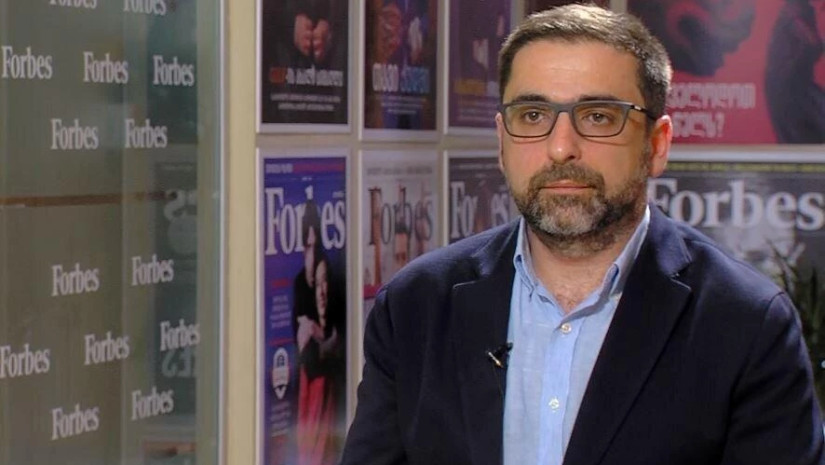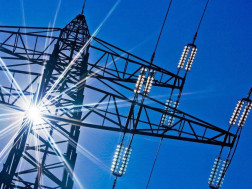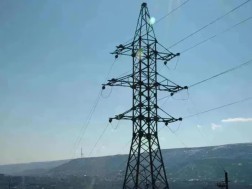Georgia's energy dependence on Russia is growing. According to the electricity market operator, in August, compared to the same period of the last year, electricity imports from Russia increased by 171.5%. Considering all the challenges that Georgia faces in this field, the necessity to build new generation facilities is becoming more and more crucial. What projects does Georgian Energy Development Fund (GEDF) run and how the country should respond to the challenges facing the energy sector - These are the topics that BMG covered during the interview with Giorgi Chikovani, CEO of GEDF.
Thank you for taking our questions and let’s start our interview with the latest news - the tourist route of the Enguri Dam will start receiving visitors by the end of October. What’s there to be seen?
Because of COVID-19, this work was delayed last year. But by the government's decision, by the end of this year we will actively start to work with Enguri staff, with the local community and we will develop a couple of projects. First is the touristic route where visitors will have a chance to observe the dam itself and visit places that were not available for sightseeing before. We will also install banners, monitors, videos where visitors can see the structure of this unique building of the Dam and get to know its history to help raise awareness of the visitors. We are working with international financial institutions. Our aim is to attract private sector in this project and as you know, there are number of projects that we want to develop - to install elevator for a better view; to create discovery center and to build a Zipline. This touristic center will be really unique. We also have signed a memorandum of understanding with Hoover Dam in the United States. These two projects are very similar. We are very proud of this cooperation, since the Hoover Dam will share their experience with us. We are very optimistic that this project turns very successful.
How much investment is needed?
Depending on the different scenarios which we have now, it stands at around GEL 40-50 million.
Let us proceed with the renewable energy projects with the focus on the Udabno solar power plant, which will be built by Next Energy. Please, share with us details on this project and its investor… When can we see this first solar power plant in Georgia?
About one month ago we completed the tendering process and the company - Next Energy won this tender. They will receive construction permits in a couple of months and by the end of the next year we should have the project commissioned. This means that in the beginning of 2023, the project should be operational. There is also a new initiative based on the government resolution last year, where the government provides subsidies to a renewable energy sources if the capacity is more than 5 MW. This project falls under this category, boosting investor motivation. The same is true with Udabno solar plant and its investor. We are looking forward to the successful completion of the project.
What is the total budget for this project?
As I know our partner is preparing an EPC tender, where the latest prices will be identified. From our estimation the cost of the project will be around USD 3.5 mln.
Almost five years have passed since the construction of the Kartli wind power plant and still, we have only one wind power plant. Why? What is the main obstacle for investors?
I would not say that projects are not developing. There is a quite complicated process that all of them need to pass. Around 250 MW are in development phase – I mean on the stage of the feasibility study and the environmental impact assessment. Afterward, environmental and construction permits must be obtained, and that’s when the construction starts. However, one of our projects, a 50 MW capacity - Nigoza power plant should receive a construction permit next year and the actual construction process we will start the year after. This is our plan. By 2025, around 250 MW power plants should be operational in Georgia. This is something that we are looking forward to.
And what about HPPs? Including the problematic Namakhvani HPP Cascade. Is it possible to change some details in the contract signed between ENKA and the Georgian Government?
It is difficult to change any agreement which is already signed by the government and the investor. However, the dialogue has no alternative. Personally, I do not see anything that needs to be changed in the memorandum. To me, the memorandum itself is quite well balanced and I do not see the big potential to change it unless the mediation process requires such changes. Then, everything is possible.
Speaking of challenges, we should mention that electricity imports are growing, especially from Russia. How should Georgia respond?
To develop local renewable energy sources and that has been Georgia's strategy since Georgia gained its independence. Demand grows much faster than the construction of new facilities and Georgia should continue developing its own resources. We should also keep in mind that we are a very small country and vulnerable to seasonality, hydrology and our consumption. Our strategy is to meet our demand with our resources and then have the ability to trade energy with all our neighbors. This is the only solution.
















